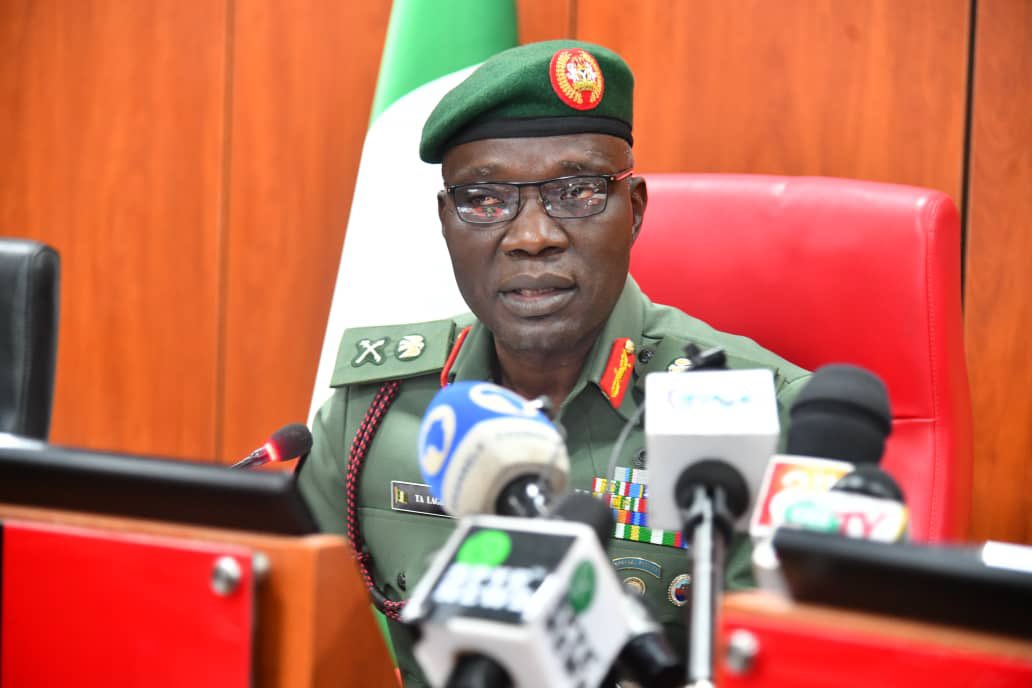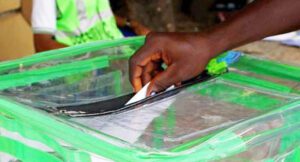
Restoring trust in Nigeria’s security through meritocracy, transparency
Nigeria’s security landscape has reached a critical juncture, demanding urgent attention and action. The Chief of Army Staff, Lieutenant General Taoreed Lagbaja recently highlighted a reality that many have been reluctant to confront: the nation has only two million security personnel for a staggering population of 200 million.
This alarming ratio emphasises a glaring inadequacy in our defence capabilities at a time when security challenges are more pronounced than ever.
During his address at the 2024 Distinguished Personality Lecture in Ilorin, General Lagbaja expressed a commitment to addressing the country’s precarious security situation.
However, he candidly warned that expecting a mere two million personnel to effectively safeguard such a large population is unrealistic. His remarks serve as a wake-up call, emphasising the urgent need for a reassessment of our security strategy.
The challenges facing Nigeria—ranging from insurgency and banditry to communal clashes—are daunting, and the current security framework is evidently insufficient.
It is becoming increasingly clear that the nation is sitting on a powder keg, with tensions rising and the potential for widespread instability looming.
As a nation, we must recognise that the time for complacency has passed. The growing discontent among citizens, exacerbated by insecurity, requires a comprehensive and proactive approach to bolster our security forces and infrastructure.
Without such measures, the risks we face may soon escalate beyond our control. It is imperative that policymakers take decisive action to address these inadequacies.
Nigeria’s safety and future depend on our collective resolve to strengthen our security apparatus and ensure the protection of every citizen. The fuse is burning, and we must act before it’s too late.
Banditry, terrorism, kidnapping, cattle rustling, and separatist movements threaten to tear the fabric of the nation apart.
The reality is that the country’s two million security personnel are woefully inadequate for its 200 million citizens, a fact that should not go unnoticed. The Chief of Army Staff deserves commendation for speaking truth to power on this pressing issue.
While some dismiss the continued reliance on troop deployments in this technological age, we argue that a visible military presence instils public confidence and acts as a deterrent to criminal activities.
The statistics paint a grim picture: the United Nations recommends a minimum of one police officer for every 450 citizens, yet Nigeria’s ratio stands at a dismal 1:750.
In contrast, developed nations like the United States and the United Kingdom boast ratios of 1:240 and 1:270, respectively. This disparity is not merely troubling; it is perilous.
However, numbers alone do not encapsulate the challenges facing Nigeria’s security forces. Corruption, nepotism, and incompetence are rampant within the system.
The recruitment process is fundamentally compromised, with wealthy individuals and politicians manipulating it to favor their associates. Meritocracy has been sacrificed in favour of connections and cash, leading to a workforce that is often inefficient and ineffective in safeguarding citizens.
Furthermore, poor remuneration and a lack of basic amenities have demoralised security personnel, making service in the armed forces less appealing to younger Nigerians.
Many who do enlist do so not out of a sense of duty but due to a lack of other employment opportunities. Once in the system, rather than fulfilling their roles, some turn security checkpoints into cash points, further eroding public trust.
The time has come for a fundamental overhaul of Nigeria’s security framework. Addressing these deep-rooted issues is not just necessary; it is imperative for the safety and stability of the nation.
We must prioritise merit-based recruitment, improve working conditions, and restore public confidence in the security forces. Only then can we hope to combat the threats that endanger our society and ensure a safer future for all Nigerians.
It’s deeply troubling that soldiers in the Nigerian Army earn less than their counterparts in paramilitary forces, while the families of fallen heroes face eviction from their homes.
Young Nigerians, especially from marginalised regions, are increasingly disenchanted with the idea of serving in the military.
The implications of this situation are severe. Insecurity is stifling economic progress, driving away investors, and forcing businesses to close their doors. Humanitarian crises are on the rise, displacing millions and worsening poverty levels.
Moreover, social cohesion is deteriorating, with ethnic and regional tensions bubbling beneath the surface.
This crisis cannot be ignored any longer, particularly by the federal government, which oversees the military and police forces.
We urge that the upcoming 64th Independence anniversary be a turning point for our political leaders, especially President Bola Tinubu, to rethink and revamp the security system.
With a mere two million security personnel patrolling a vast nation, the current strategy is inadequate to tackle the widespread insecurity. We need more boots on the ground.
Thus, we challenge the Nigerian government to confront this urgent crisis with decisive action. This should include an immediate overhaul of the recruitment process to prioritise merit and transparency, along with increased funding for security infrastructure, equipment, and training.
Competitive salaries and benefits for security personnel must be established. Those on the front lines should receive the support and recognition they deserve, rather than facing repercussions for speaking out while their superiors enjoy the comforts of their offices.
Additionally, the establishment of state police is crucial to addressing regional security challenges.
The government must also promote community engagement and intelligence sharing, while tackling the socio-economic inequalities that fuel insecurity.
Time is running out for Nigeria to address its security crisis, and the consequences of inaction are too grave to ignore.
Without immediate and comprehensive reforms, the nation risks a complete breakdown of law and order.




